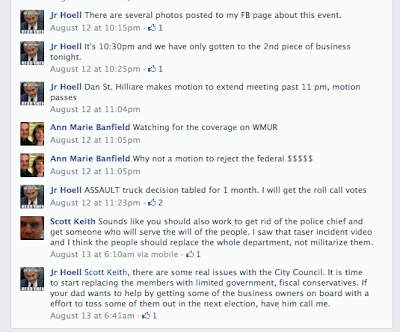The Oxford Dictionary defines serendipity as the occurrence
and the development of events by chance in a happy or beneficial way. Other descriptions
include: a happy accident, pleasant surprise, or fortunate mistake. Serendipity
is the act of finding of something good or useful while not looking for it. The
Urban Dictionary defines it as, “A very good coincidence, often leading to
something really awesome.”
The term serendipity comes from “The Three Princes of
Serendip” by Horace Walpole. It’s
a fairy tale that takes place in the country of Serendippo, where the sons of
the king were heroes who “were always making discoveries, by accidents and
sagacity, of things they were not in quest of.” Serendipity has been voted one
of the ten hardest English words to translate. It is a word that is nearly
impossible to say without smiling. It is a word that feels good in one’s mouth.
It was one of David Emerson’s favorite words. He saw
serendipity everywhere, happening all around him, all the time.
David and I met at the Conway Library, and bonded over a
discussion of the sorts of cards Hallmark doesn’t make, but ought to. They
don’t seem to make cards for unusual family situations – or for unusual
families. Over the years we laughed often about the differences in our
childhoods. He was surprised (and a little horrified) to learn that my family
didn’t raise chickens. Of course he grew up on a farm, and I grew up in middle
class suburbia, which was not chicken friendly in the sixties and seventies. Neither
one of us turned out the way we were supposed to. I was supposed to marry a
doctor and David was supposed to become a Baptist preacher. Oops.
David loved chickens, an enthusiasm I never shared. I came
to embrace some of his interests, but not the chickens or any of his birds.
Some who are reading this will remember David’s giant turkey Jerome, who loved
to ride with him in the car. Jerome didn’t love me. He had a parrot named Darwin who talked incessantly to him,
but never said a word if I was in the house. Fortunately he had plenty of bird-obsessed
friends, so it didn’t matter that I didn’t share his enthusiasm. He often went
on chicken related adventures that resulted in some excellent stories, like the
night a guy in a Wal-Mart parking lot taught him how to artificially inseminate
a chicken with a plastic spoon. Those were the kinds of things that happened to
David with some regularity, and the kinds of stories he most loved to tell.
My family belonged to a small ski club in N. Conway when I
was a child, something that David relentlessly mocked me for, in the way that
only a native can. (Or would.) We came up on ski trips in the winter and work
weekends in the summer, where the men would work on the club building, have
barbecues, and then we’d all swim in the Saco. It was always my parents’ dream
to move to North Conway, and in 1974 they did, not long after my daughter was
born. They went to live in the mountains, and I stayed in the city in
Massachusetts. In the late seventies my father went to work at the Reporter,
the old weekly newspaper. For a couple of years he gave me a gift subscription.
The papers would arrive every week, and I would read them with great curiosity.
What I saw in those papers bore no resemblance to life as I was experiencing
it. I was a young mother living in a city, reading about rural, northern, small
towns. It was like visiting a foreign country.
The Reporter had weekly columns from town correspondents, a
tradition that is carried on to this day by the Conway Daily Sun. The content
was a bit more formal back then, with updates on the social lives of various
town members who received callers all very formally written: “Mrs. Alexander G.
Bell received Mrs. Model T. Ford and Mrs. Oscar Myer for tea on Wednesday
afternoon.” These weeklies were an important source of news and carefully
couched gossip for the community. It’s sad to see them disappearing or being
taken over by conglomerates that churn out sanitized blandness as a means of
selling advertising.
In the Reporter, my favorites were the columns from Stow, Maine, written by the
late Gwen Tarbell. Stow sounded like the strangest place in the universe to a
young city dweller. Gwen Tarbell lived on a farm, and that was what she wrote
about. One year she wrote about getting a bunch of new chicks in the spring,
and naming them all Doris – or something like that. They all got the same name.
Her stories of the farm, the comings and goings of her family, and the doings
in Stow, Maine were all told with warmth and good humor.
I’d never been to Stow. I had no frame of reference – and
this was long before Google. It was a strange, almost exotic place for me, and
I was fascinated. One of the regular characters in Gwen’s stories from Stow was
a young man who lived up the street. His name was David Emerson.
Serendipity.
There was no way to know as I was reading those stories that
twenty five years later I would marry that young man.
Serendipity.
I’m sorry that I never got to meet Gwen and tell her that
story, but she was long gone by the time David and I figured it all out. I like
to think she would have gotten a kick out of it. We certainly did.
“History is an intricate web of timing, people, circumstances,
and serendipity.” Don Rittner
David Emerson: March 27, 1949 – August 30, 2009
© sbruce 2013 Bi-weekly column for the August 23 edition of the Conway Daily Sun newspaper.














